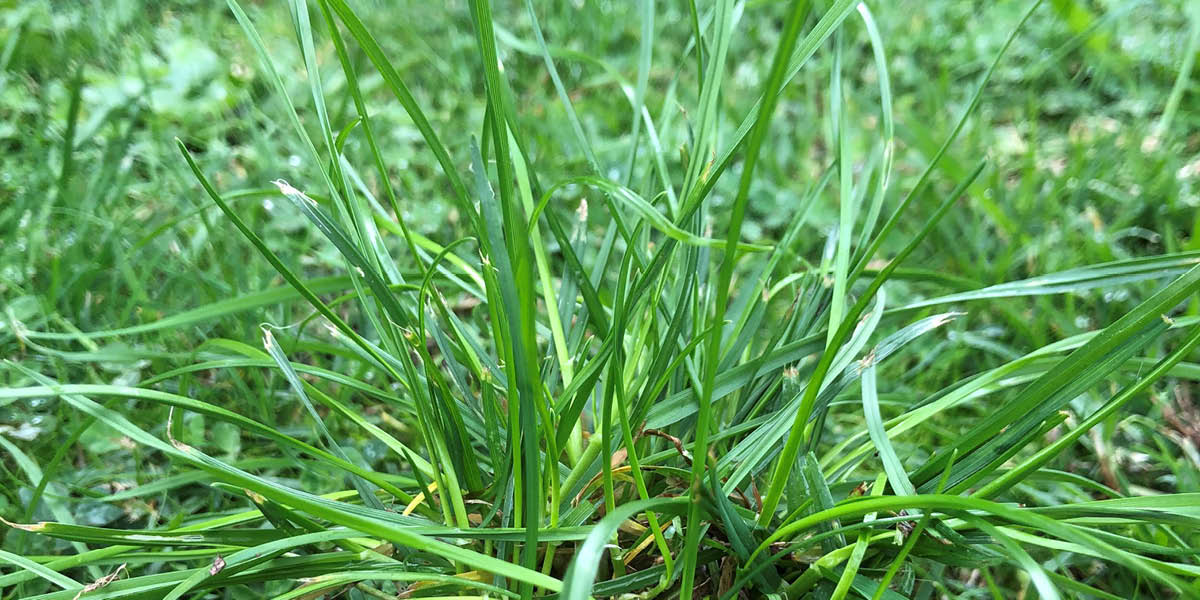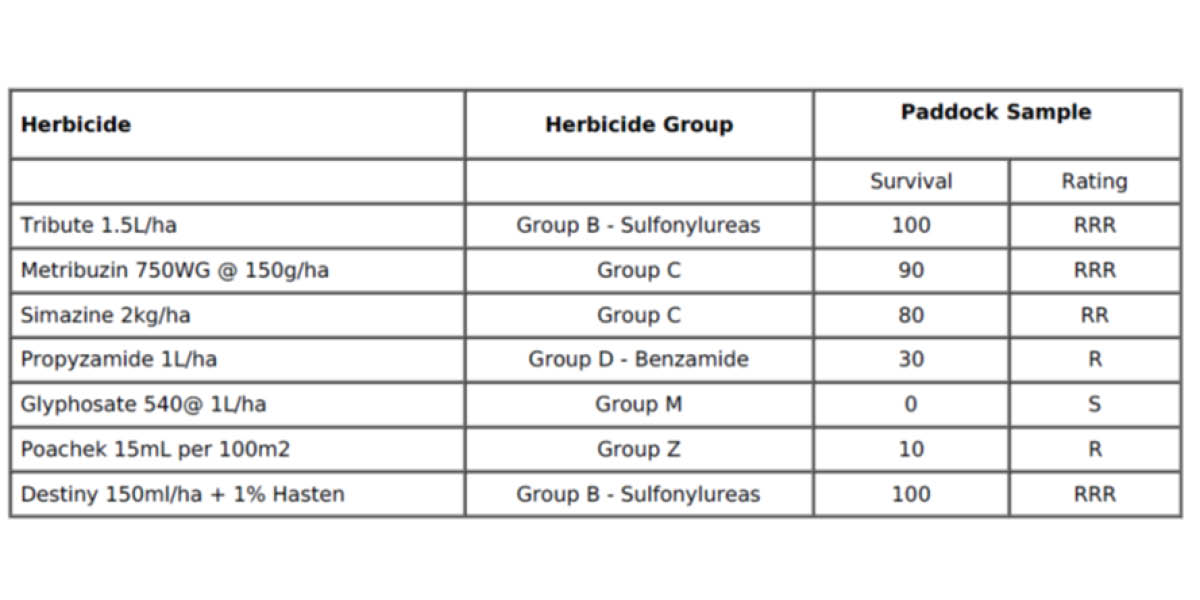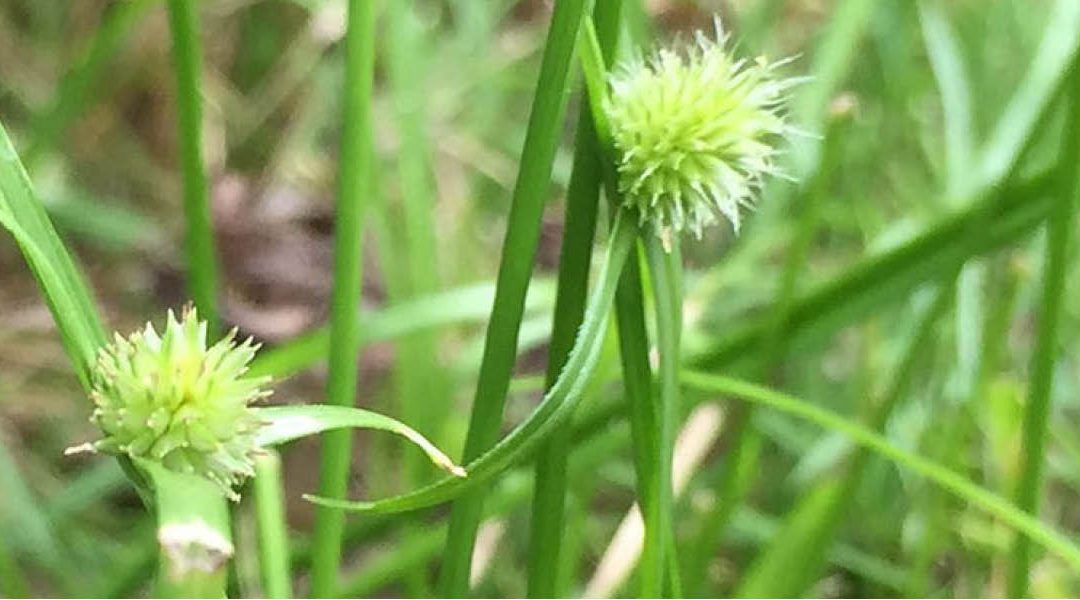It’s true, testing for weed resistance to herbicides can make turf growers thousands of dollars through improved herbicide and rotation choice. And it is also a well-known fact that herbicide resistance is a vital component of managing resistance on turf properties.
So strategically, what is the turf industry doing to determine which paddocks to remove from cropping and tactically, deciding on what herbicide groups will work in specific paddocks that are suspected of having resistant weeds.
Turf Agronomist Peter Kirby is involved in some groundbreaking work in this field that has never been conducted in the Australian turf market before. He explains what research is being undertaken and what the turf industry can learn from other agricultural sectors.
If you want to understand or know anything about herbicide weed resistance, a very major concern for the turf industry, then one of the World’s leading company’s in this area is based right here in Adelaide, South Australia – Plant Science Consulting.
Over the past 50 years agriculture has moved from a system where weeds were primarily controlled by tillage to one where herbicides were the main control tactic.
According to Dr Peter Boutsalis, “… the widespread and intensive use of herbicides for weed control has provided substantial benefits in terms of easier and less expensive weed control, reduced soil degradation, and more timely sowing of crops resulting in higher yields; however, this has not occurred without negative impacts”.
Dr Boutsalis claims that a: “A major negative impact from herbicide-based weed control has been the evolution of herbicide-resistant weeds. To date, 209 weed species have evolved herbicide resistance, worldwide (Heap.I 2012).”
In an attempt to try and combat this growing phenomenon, Dr Boutsalis founded Plant Science Consulting which for the past 20 years has been conducting herbicide resistance testing of different weed species in Australia.
The company specialises in Herbicide Resistance and Herbicide Resistance Testing Services. Initially the testing was largely centred around problematic weed species from agricultural situations.
This testing has recently been expanded to non-agricultural areas including turf farm production as well as turf maintenance situations such as golf courses, sports fields and amenity horticulture.
Peter Boutsalis is heavily involved and well respected in the Herbicide Resistance scientific community, internationally. Today Dr Boutsalis works as an independent agricultural consultant and for The University of Adelaide researching herbicide resistance.
He has authored several papers on herbicide resistance, particularly focused on Rigid Ryegrass (Lolium rigidum) and Indian Hedge Mustard (Sisymbrium orientale).
For all growers, Plant Science Consulting offers a wide range of testing services including herbicide resistance testing of weeds, as seeds and plants (Quick-Test).
The Quick-Test method aims to answer growers concerns about weed resistance on their properties and was developed by Dr Boutsalis in the late 1990’s.
Herbicide resistance
Herbicide resistance testing of Winter Grass and other problematic weeds has not only confirmed resistance to many herbicides in Australia in turf production and maintenance activities, but most importantly identified opportunities of which herbicides remain effective.
Most turf farms and turf facilities regard Winter Grass (Poa annua) as their most problematic weed (particularly in southern Australia), and control has become increasingly more difficult due to widespread resistance.
Internationally, resistance to nine differing herbicide modes of action has been confirmed in Winter Grass (see http://www.weedscience.com/Pages/Species.aspx for more information). However, little was known about resistance in Winter Grass in Australia – until recently.
What we know about Winter Grass in Australia

Winter Grass (Poa annua) is a genetically diverse winter annual species. A native of Europe, it is widespread across most continents, predominantly in temperate countries infesting orchards, nurseries, seed crops, horticultural crops, turf and golf courses.
Winter Grass colonises in disturbed areas including annual crops in higher rainfall areas and has adapted to heavy grazing and close mowing. Plants can mature and set seed at a 2mm height.
Additionally, the targeted use of effective herbicides can prevent Winter grass and problematic weeds developing complex herbicide resistance, which can be difficult to manage.
“It is highly recommended that you test Winter Grass or any other problematic weeds from one or a couple of contrasting areas of a turf farm or turf facility to obtain a baseline of the resistance levels present,” Dr Boutsalis said.
“Most samples are sent in as turf plugs. Only the top 3-4cm of a plug are required.”
What Plant Science Consulting does is place the plugs in pots and within a week or so Winter Grass or the problematic weed grows.
“We then transplant these into pots, and spray the fresh healthy transplants in a controlled herbicide spray cabinet. We can also test for resistance to pre-emergence herbicides,” he added.
“The pots once treated, are then grown in temperature-controlled environments, modified to enhance growth of the specific weed being studied. This will then quickly ascertain weed resistance levels.”
Figure 1: Results are reported in the below format as an example.

Resistance levels are reported as a percent survival from the herbicide application, and are also designated with the below resistance rating:
- S – indicates no detection of resistance.
- R – indicates low-level but detectable resistance.
- RR – indicates medium-level resistance.
- RRR – indicates plants tested have strong resistance.
In addition to Winter Grass testing in turf, Plant Science Consulting is now expanding the service to cover other economically significant weed species in turf production, including Sedges.
It has recently been engaged by Indigo Specialty Products to look at resistance levels to a range of herbicides on Mullumbimby Couch (Cyperus brevifolius) with very interesting results. This weed is becoming more difficult to control, and the same chemistry groups have been used for many years to control the Sedge species which are common in turf production and maintenance.
The first step to understanding your weed resistance is to register your problematic weed samples on the Plant Science Consulting website where there is more information including a price list www.plantscienceconsulting.com.au.
In addition, to discuss your Winter Grass or other problematic weeds and resistance testing further, you can contact Dr Peter Boutsalis M:0400 664 460 or Dr Sam Kleemann M: 0418 256 475.
Plant Science Consulting also works closely with a range of turf industry consultants and distributors who can assist you through the process and help with outlining herbicide programs based upon the results obtained.
* Peter Kirby is an independent turf agronomist and also director of Indigo Specialty Products.

